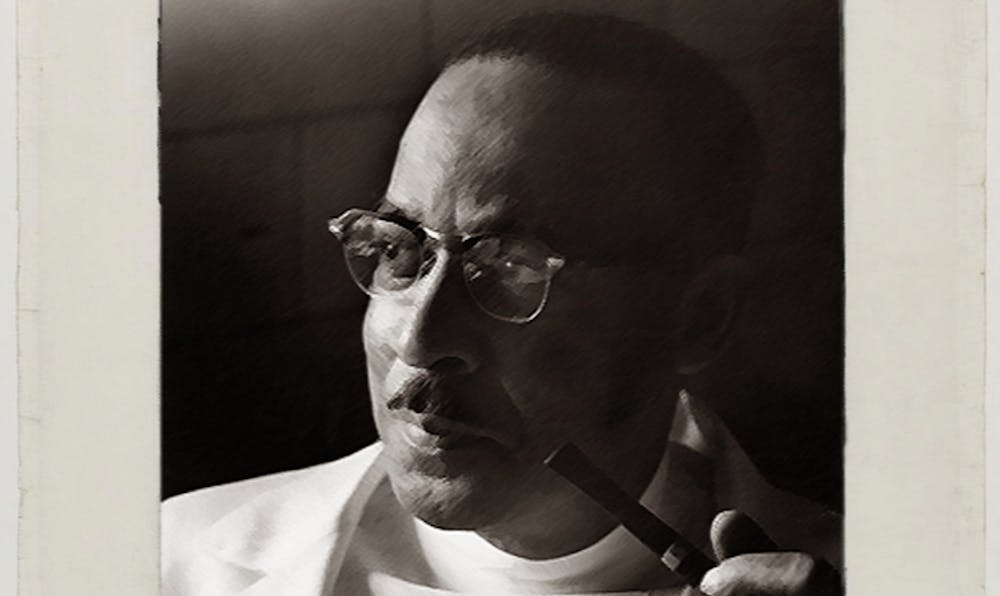In an email to the Hopkins community on May 11, University President Ronald J. Daniels announced the launch of the Vivien Thomas Scholars Initiative, a $150 million initiative devoted to expanding and diversifying Science, Technology, Engineering and Math (STEM) PhD programs. A gift from Hopkins alum Michael Bloomberg provided funding for this initiative.
According to Daniels, concern over the longstanding lack of underrepresented minority (URM) students in STEM PhD programs was a driving force behind the initiative. He noted that, in 2020, only 3.8% of Hopkins STEM PhD students identified as Black and only 11% identified as URM.
“The PhD is an essential pathway to faculty appointments and is exceptionally valuable for government, industry and nonprofit leadership roles and we must be as deliberate in our approach toward achieving greater diversity at the PhD level as we have been at the undergraduate,” Daniels wrote.
Peter Weck, a member of the Organizing Committee for Teachers and Researchers United, the University’s unofficial graduate student union, highlighted further actions Hopkins could take in an email to The News-Letter.
“We’re glad to see the University diverting more money toward expanding and diversifying PhD programs,” he wrote. “We encourage university leaders to adopt these priorities more consistently. An important start would be cutting harmful and racist spending priorities like private policing and us[ing] those funds to benefit the local community, as well as current students and staff from underrepresented groups.”
Daniels noted that this initiative will create around 100 permanent positions in Hopkins STEM PhD programs for graduates of historically Black colleges and universities (HBCUs) and minority-serving institutions (MSIs). It will also offer up to six years of full funding for participating PhD students, along with additional resources for mentorship and support.
Dr. Damani Piggott will be the inaugural director of the initiative. Piggott is the assistant dean for graduate biomedical education and graduate student diversity at the School of Medicine and he will soon become the University’s first associate vice provost for graduate diversity and partnerships.
Daniels added that the initiative will also foster the creation of new and expanded summer and post-baccalaureate programs to connect HBCU and MSI students with the University’s faculty and students, as well as research and scholarship opportunities.
Daniels emphasized the importance of this collaboration in his email.
“Attracting and supporting talented undergraduates to pursue further graduate studies will be critical to our effort,” he wrote. “An essential element of this initiative will be new and expanded partnerships with HBCUs and MSIs to build on their proven records of launching the careers of talented students in STEM-related fields and establish additional avenues of support, training and mentorship.”
The initial cohort of HBCU and MSI partner institutions includes Howard University, Morehouse College, Morgan State University, Prairie View A&M University, Spelman College and the University of Maryland, Baltimore County.
Department of Mechanical Engineering Assistant Professor Jeremy Brown expressed support for the initiative in an interview with The News-Letter.
“I have focused on recruiting underrepresented PhD candidates, particularly those from HBCUs and MSIs,” Brown said. “Unfortunately, these efforts have had limited success thus far, in part because of unsustainable financial support.”
Brown added that the program will help Hopkins compete for a more diverse selection of PhD students.
Morgan State University junior Alex Ederson supported the University’s partnerships with HBCUs.
“I’m excited that Morgan State is part of this initiative, given how much research is done at my school,” he said. “I think it's pretty great that Hopkins is using the money that Michael Bloomberg donated to help with getting Black college students into STEM programs because there aren't enough Black students in STEM programs.”
According to Daniels, the initiative’s namesake was a renowned surgical laboratory supervisor at the Hopkins Hospital in the 1940s. Thomas developed a cardiac surgery technique to treat “blue baby syndrome,” work he did not receive credit for until decades later.
He noted that Thomas trained Hopkins surgeons and researchers for decades, eventually receiving an honorary doctorate from Hopkins in 1976 despite never attending medical school after being forced to drop out of his HBCU during the Great Depression.
In an email to The News-Letter, Assistant Vice President of External Relations Karen Lancaster emphasized the mission of the initiative.
“Johns Hopkins has an opportunity and responsibility to broaden and increase the diversity of talent in our academic community and we are devoted to creating new pathways for students who have been historically underrepresented in leadership positions and in STEM fields,” Lancaster wrote.
Lancaster elaborated on the initiative’s rollout.
“We intend to begin our pathway programs immediately and to welcome the first cohort of PhD students in the fall of 2022,” she wrote. “To spark the interest of talented undergraduates, the initiative will actively reach out to students matriculating from HBCU and MSI institutions.”





